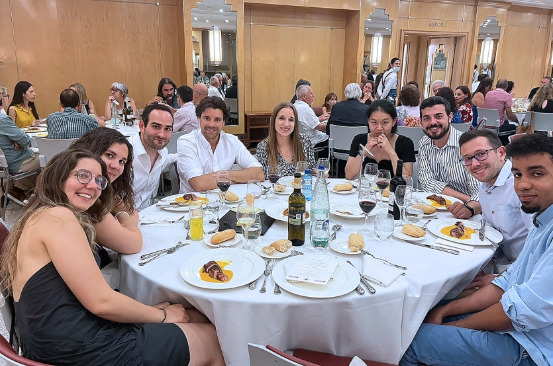From July 11 to 13, the VI International Conference on Teaching Innovation in Chemical Engineering (CIDIQ), a biannual meeting organized by the Conference of Directors and Deans of Chemical Engineering (CODDIQ) , was held at the Faculty of Physical Sciences. which aims to promote the exchange of teaching experiences in the field of Chemical Engineering to advance in the common goal of training good professionals within this area of knowledge. On this occasion, the organization of the VI CIDIQ has been carried out by the Department of Chemical and Materials Engineering of the Complutense Faculty of Chemical Sciences.
Since its first edition in Granada in 2012, CIDIQ has become the national benchmark for teaching innovation in Chemical Engineering. After the latest experiences within the context of the health crisis, this congress aims to be a forum where all those who are looking for better ways to impart teaching practice within the area of Chemical Engineering have met again, being a unique opportunity to put in common experiences, methodologies, reflections and knowledge to face the development of the future of teaching in this area.
In previous editions of CIDIQ, the impressions and results obtained in the learning of our students were analyzed after the implementation of innovative initiatives to improve the transmission of knowledge in the area of Chemical Engineering. In this new edition they wanted to analyze the future demands of the students and analyze how the new methodologies have been adapted to the development of classes on online platforms.
The main objectives of this congress could be summarized in sharing experiences of good practices of the different methodologies and teaching activities that have been developed and that have been developed as a consequence of the health crisis; and reflect and debate on aspects related to teaching, the training of our students and the best practices to transmit knowledge and skills within the field of Chemical Engineering.
The number of participants in the congress has risen to 200, including 170 professors and doctoral students from 32 different Spanish universities, and as a novelty in this edition, in which a specific program has been prepared with parallel activities for students, from 30 undergraduate and master ‘s students from different Spanish universities.
The congress has passed during three intense days with many communications and workshops. The number of communications presented at the congress amounts to about 140, distributed in five thematic areas: new teaching methodologies, Evaluation of competences and learning results, Computer applications in the teaching of Chemical Engineering, Entrepreneurship, university-business-society nexus and the curriculum in Chemical Engineering. The 140 communications presented have been distributed in 65 oral communications, 40 posters, and 40 flash posters (posters complemented by a short flash type oral communication).



